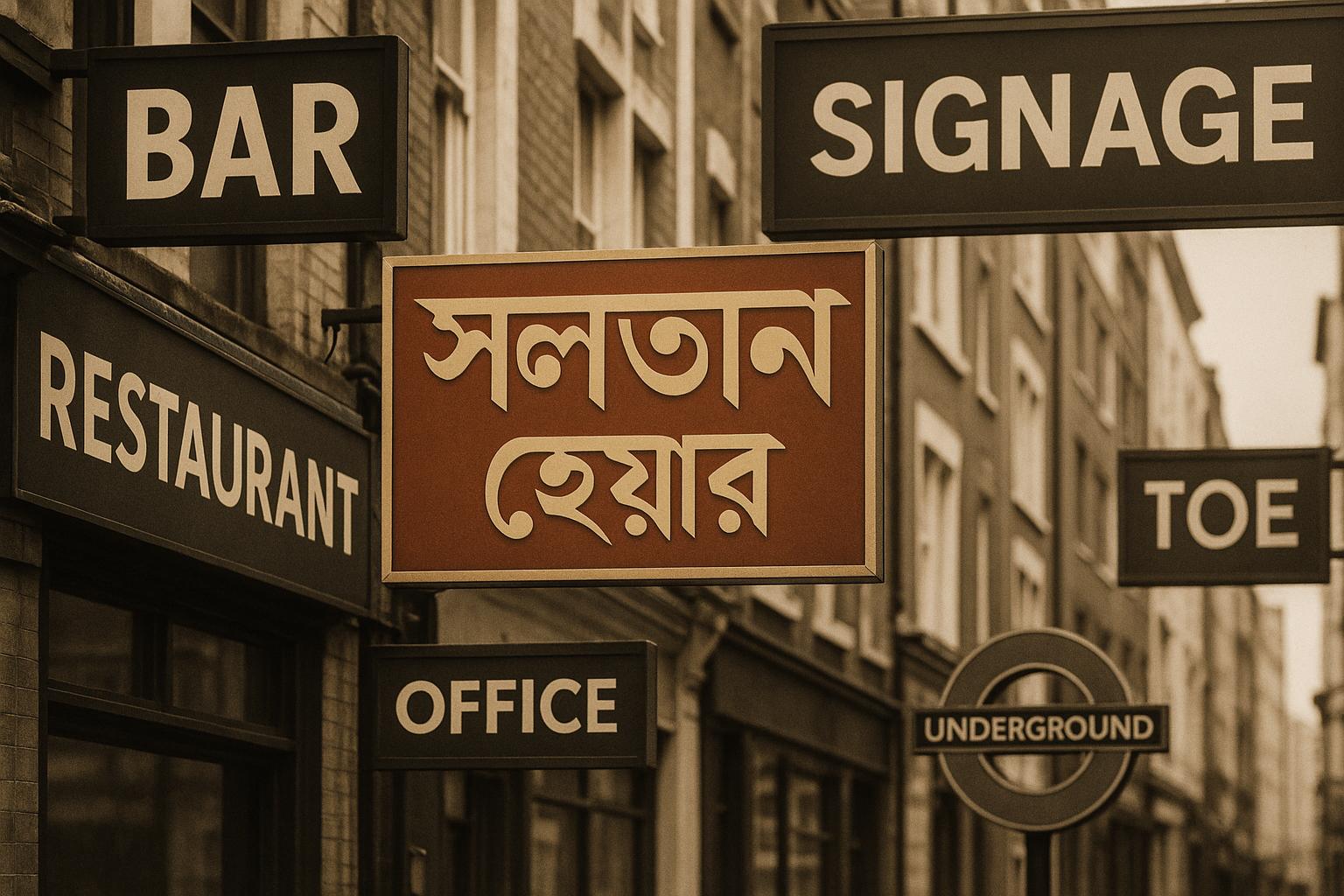In a recent incident that has sparked widespread debate, Conservative London Assembly member Susan Hall criticised the presence of a Bengali-language sign at Whitechapel Underground station, declaring it "unacceptable" and asserting that "This is England, we speak English." This comment was made in response to an image showing the Bengali sign, which runs alongside an English version at the station entrance. Hall's remarks have provoked significant discussion about multiculturalism and language use in public spaces in London.
The bilingual signage at Whitechapel station was installed in March 2022 by Tower Hamlets Council to honour and acknowledge the contributions of the Bangladeshi community in East London. The area, notably Tower Hamlets, is home to the largest Bangladeshi population in England and Wales, with a 2024 census revealing 34.6% of residents identify as Bangladeshi and nearly 40% as Muslim, also the highest concentration in the country. The council funded the project as part of broader station improvements. The installation was accompanied by a formal recognition event attended by Bangladeshi diplomats and timed ahead of Bangladesh's Independence Day on 26 March, underscoring the cultural significance of the gesture.
The Mayor of London's office swiftly responded to Hall's criticism, emphasising the city's pride in its multicultural fabric. A spokesperson for Mayor Sadiq Khan stated that London’s diversity is its "greatest strength" and reaffirmed the city's commitment to celebrating the myriad cultures that make it a global capital. Khan's office took a firm stance against the criticism, highlighting the bilingual signs as a reflection of London's inclusive identity rather than a challenge to the English language's prominence.
Non-English signage on transport networks in London is not a recent innovation. For example, bilingual station signs in English and Punjabi have been present in Southall since the 1990s, later refreshed through the Crossrail project in 2021 to serve the local Punjabi community better. These precedents illustrate a long-standing recognition of the linguistic diversity of London's population in public infrastructure.
This latest controversy comes amid an environment where debates around integration, belonging, and multiculturalism remain highly charged. Supporters of the Bengali signage argue that such measures foster community pride and inclusivity, especially in areas where ethnic groups have deep historical roots and significant demographic presence. Critics, however, like Susan Hall, frame the issue around language assimilation and national identity, reflecting broader societal tensions.
The Bengali signage at Whitechapel is part of a growing acknowledgment of the Bangladeshi diaspora's cultural impact, not only in London but internationally. Figures such as West Bengal Chief Minister Mamata Banerjee have praised the move, highlighting the global importance of the Bengali language and its diaspora communities.
As discussions continue both online and offline, Tower Hamlets Council and Susan Hall have been approached for further comments. The incident underscores the sensitive balancing act faced by cities like London, seeking to celebrate diversity while navigating competing views on cultural integration and national identity.
📌 Reference Map:
- [1] (MyLondon) - Paragraphs 1, 3, 6
- [2] (BBC News) - Paragraphs 2, 4
- [3] (NDTV) - Paragraph 5
- [4] (IanVisits) - Paragraph 4
- [5] (The Telegraph India) - Paragraph 5
- [6] (Daily Dot) - Paragraph 1, 2
- [7] (MyLondon) - Paragraphs 1, 3, 6
Source: Noah Wire Services
